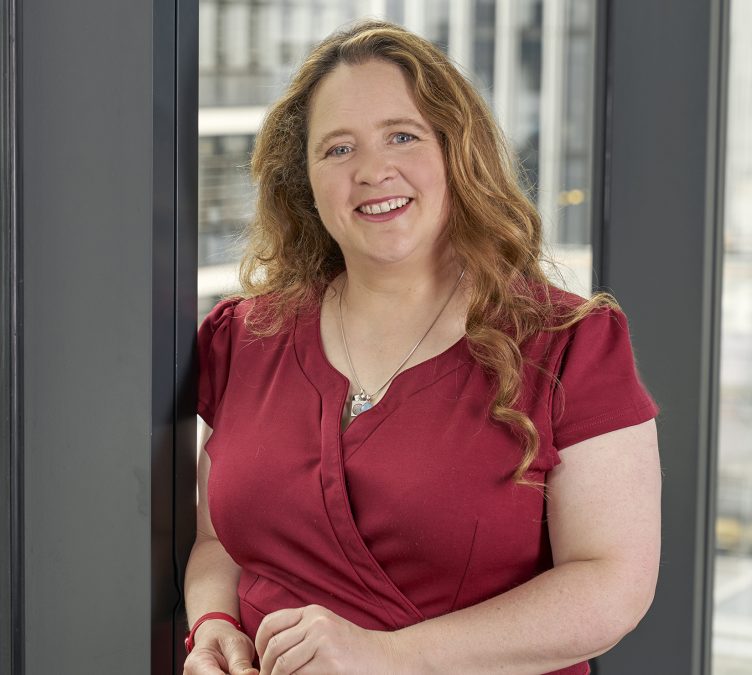The Civil Justice Council has handed down a wide range of recommendations on costs budgeting, guidelines hourly rates and beyond. In an article first published in the 9 June 2023 edition of New Law Journal, Julian Chamberlayne and Louise Morgan hail the arrival of a more bespoke approach.
The Civil Justice Council (CJC) has now published its ‘Costs Review—Final Report’, following a ‘strategic and holistic review’ of costs by a working group. Costs budgeting, guideline hourly rates (GHRs), costs under pre-action protocols, digitisation of the justice system, and the extension of fixed recoverable costs (FRC) were all considered.
The consultation comprised a conference and written submissions from stakeholders, with the consultation reopening to consider the Court of Appeal judgment in Belsner v CAM Legal Services Ltd [2022] EWCA Civ 1387. This report is now in the hands of the Master of the Rolls to decide whether and when to proceed with the many recommendations for change.
The report states that there is ‘almost universal recognition that visibility of meaningful costs estimates by opponents and the courts is useful and should be retained’. Only a handful of respondents considered that costs budgets should be abolished. In light of the responses, it is unsurprising that the working group has recommended that costs budgeting continue.
Notwithstanding the success of the notion of budgeting and openness in relation to costs liabilities, many respondents indicated that there was a need to vary the process depending on the type of case and court in which it is brought. For example, most Business and Property Court (BPC) users expressed a desire to dispense with budgeting. Likewise, but for differing reasons, defendants’ representatives in qualified one-way costs shifting (QOCS) cases, particularly clinical negligence claims, thought budgeting for defendants should be dispensed with.
The working group has embraced the desire of many respondents to improve the cost budgeting process by proposing various bespoke processes, in particular:
- in QOCS cases, defendants only need to file and serve page 1 of Precedent H;
- a pilot of a ‘costs budgeting light’ approach for Part 7 multi-track claims valued up to £1m (including BPC cases); and
- a pilot of a ‘lighter touch approach’ for BPC cases with a value of more than £1m.
Some respondents also indicated a concern that the listing of costs and case management conferences at the same time caused delays. As part of the shift away from the one-size-fits-all approach, the working group would give clearer discretion to judges in different courts and specialist lists to order costs and case management conferences independent of each other, with any necessary rule change to be dealt with by way of a pilot practice direction.
However, an important proposed caveat to that decoupling is that the court should still need to see information about costs at any case management conference to set directions.
Sensibly, there was an acknowledgement that there is nothing within the current rules to prevent judges from referring costs budgeting to specialist judges in the Senior Court Costs Office or County Court.
Guideline hourly rates
GHRs are here to stay, with most respondents accepting their usefulness. One of the welcome recommendations is that GHRs be index-linked to the Services Providers Price Index, with a review on 1 January each year, and for this to be backdated to the date of data-gathering for the 2021 GHR review (circa 2019).
There was also an acknowledgement that the rates do not reflect the market for ‘very heavy commercial and corporate work’, with a recommendation that a new band be developed to sit above London 1 rates for use both in London and elsewhere.
The working group identified a tension between ‘identifying market rates with any degree of certainty and the alternative approach of simply setting a rate that represents what the courts are prepared to permit’. It proposed another judge-led working group to be set up to consider the methodology and report to the Master of the Rolls well before the detailed review in five years’ time.
Respondents had differing views as to when departure from GHRs should be permitted. The working group accepted that ‘the circumstances in which the court will be prepared to depart from GHRs were lacking in clarity’. It proposed a new test be formulated, but gave no clues as to what this might be.
In a display of the holistic nature of this review of costs, the working group has indicated that counsel’s fees should be included in GHRs. It acknowledged the challenge, but did not prescribe the methodology for counsel’s GHRs.
Pre-action protocols & digitisation
Digitisation of the dispute process will continue, with new portals being recommended. The working group wanted to retain a distinction between pre-action dispute resolution and court proceedings, but with some limited costs recovery in the pre-action stage. For those cases where the pre-action protocol permits recovery of costs, a rule change may be required to effectively treat those claims as issued at the commencement of the pre-action protocol.
This fundamental shift, effectively treating some pre-action work as issued, should be piloted.
The Solicitors Act 1974
In line with numerous judicial comments in judgments in recent years, the definitions of contentious and non-contentious business were said to be outmoded. It was pragmatically recognised that the government was unlikely to view this as a legislative priority. In the meantime, it was recommended that the CJC or Law Commission be invited to report on how to bring the Solicitors Act 1974 up to date.
Protected party costs
As identified by the Forum of Complex Injury Solicitors, CPR 46.14 has no provisions on the incidence of the costs of the necessary assessment of the costs of cases concerning protected parties. It is recommended that this gap be closed by giving the court the power to determine the incidence of costs (inter partes), rather than just the quantification of costs. It is proposed that a summary, low-cost or fixed costs regime be implemented to deal with the costs associated with these costs orders.
Extending fixed recoverable costs
It was not in the working party’s remit to reexamine the intention to extend FRCs, which is already underway. The working group was simply tasked with considering the wider implications of the extension to the justice system. Respondents indicated that to be workable, FRCs must be fixed at the right rate, with regular reviews and uprating in line with inflation. It was also noted that the extension may lead to damages being reduced where parties have to pay their own lawyer’s costs.
The working group accepted the recommendation from numerous respondents to cap costs at £500,000 in patent cases in the Shorter Trial Scheme. It recommended a pilot of costs capping with the Civil Procedure Rule Committee to work with the Intellectual Property Court Users Committee and stakeholders to develop a suitable scheme.
Additional recommendations
Judges operating various specialist lists should be consulted, and stakeholders’ responses reviewed, to identify other areas where bespoke arrangements for budgeting could be introduced.
The working group also indicated a willingness to make recommendations on what it considered to be non-contentious issues arising from the consultation. These included revisions to timescales for budget discussions to permit meaningful negotiation; simplifying the budget variation process; and a review of the approach both to hourly rates and pre-action or incurred costs. It remains to be seen how contentious the last of these suggestions really is.
Conclusion
The working group did an excellent job at reviewing responses from stakeholders and took a genuinely holistic approach, with balanced recommendations made in many areas. Once implemented, these recommendations should improve access to justice by allowing parties to proceedings to estimate more accurately their potential recovery from, or liability to, their opponents.
The flexibility to decouple case and cost management hearings is welcome. However, the intended time and cost savings could be lost if the requirement for cost information before the first case management conference is anything other than light-touch. Selecting from a list of brackets of likely costs could be a simple solution. In contrast, for any cases where proportionality appears to the court to be a significant issue, it would be preferable to maintain a joint costs and case management conference.
In QOCS cases, where the defendant need only serve the first page of Precedent H against the claimant’s full budget, will that lead to an abandonment of a detailed bottomup approach and herald a return to ‘finger in the air’ estimates from defendants (albeit with figures perhaps informed by their experience on similar past cases)?
There is a welcome acknowledgement that the London 1 GHRs set in 2021, based on available BPC data, need to change because they are not representative of market rates for heavyweight commercial litigation. However, it is somewhat surprising to hear that despite reviews by the Advisory Committee on Costs (2011) and CJC working groups (2014, 2021 and 2022–23), there is still thought to be a methodological tension between market rates and what the courts have historically allowed.
The GHRs are intended to enable litigants who have suffered a civil wrong to recover the reasonable legal fees that they have incurred. In reality, litigants incur market rates from the point of engagement and which are updated annually, which vary from the notional rates that differing judges have historically thought to be fair.
In the response to the 2021 GHR consultation, Stewarts recommended that data for GHRs should be gathered from both rates claimed and rates assessed. This data could be gathered both from the budgeting and assessment stages, so would provide a larger cohort upon which to base realistic rates. We continue to recommend this approach. However, we note the additional challenge for the courts gathering rates for counsel and identifying claim values to be able to isolate very heavy commercial litigation cases.
While the working group accepted representations that the test for departure from GHRs was not clear enough, it did not propose what the correct test would be. It could be said that the fact the GHRs are already ‘intended to provide a starting point’ means the courts have an important degree of flexibility to depart from the GHRs and award costs in keeping with the nature of the case before them. The difficulty is that the Court of Appeal, in the cases of Athena Capital Fund SICAV-FIS SCA and others v Secretariat of State for the Holy See [2022] EWCA Civ 1061 and Samsung Electronics Co Ltd and other companies v LG Display Co Ltd and another company [2022] EWCA Civ 466, was reluctant to move from that starting point and award higher rates without any clear and compelling justifications. But was that not more to do with the background of those cases and/or how the arguments were presented rather than a defect in the drafting of the Judicial Guide?
We wait with bated breath to see how the Master of the Rolls responds to this report, as the profession needs further details and timescales for the implementation of each of these important changes.
You can find further information regarding our expertise, experience and team on our Personal Injury page.
If you require assistance from our team, please contact us.
Subscribe – In order to receive our news straight to your inbox, subscribe here. Our newsletters are sent no more than once a month.







